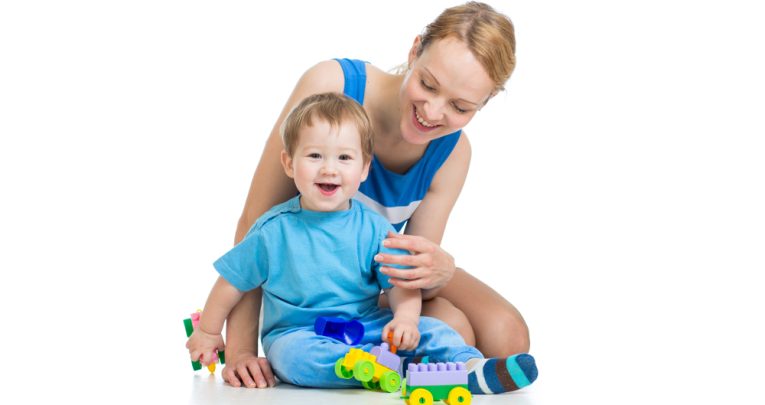Simple Ways to Help Parents Boost Early Years Children’s Home Learning

Inspire, inform and equip your parents to support their children’s development – it’s easier than it sounds, explains Sue Fisher…

- by Sue Fisher

Mums and dads are generally keen to know how their child is progressing in your setting, but when it comes to actively supporting their learning at home to build on your good work, they may be less enthusiastic.
They may feel they lack knowledge of the framework and associated developmental expectations, and be unsure of where to begin as a result.
Providing information on the types of activities their child can be involved in at home will support parents as they build the confidence to develop and extend ideas linked to their child’s specific needs and interests.
Bright ideas
Sharing ideas on activities to carry out at home to complement the learning and development taking place within your setting is a useful starting point. Encouraging parents to regularly take home their child’s learning journey will give them a clear picture of progress and achievements.
Likewise, encouraging parents to share observations of their child in the home environment will enrich and extend these valuable documents.
Try offering parents the opportunity to see the learning taking place within your setting, too – it will support those who feel less confident in asking for guidance and ideas.
Ideas can additionally be shared through newsletters, social media, information boards and displays. Whilst none of these are a replacement for face-to-face communication, they are nevertheless useful tools.
It’s important to aim to reduce parental anxiety, and to encourage them to view such opportunities as fun and enjoyable for both themselves and their child.
Consider providing additional information on online resources such as Pinterest and the Imagination Tree, in addition to factsheets and relevant publications within the setting.
Some groups I have worked with provide a professional library for staff, and this could be extended to include information packs and books aimed at parents.
Sharing knowledge
Whilst parents are best placed to know what motivates and interests their child, as trained practitioners we cannot expect them to have the knowledge of child development and the EYFS that our training and experience have provided.
However, sharing some of this knowledge, linking current professional expertise to each parent’s insights, can enrich children’s opportunities within the home environment.
A great example is the sharing of information on schemas. I’ve found parents to be fascinated by these unique patterns of learning, and eager to develop ideas to support their child through their favoured schema.
Provide information for parents on a range of schemas and suggestions to extend these whilst having fun together. There are plenty of ideas for this online – have a look at sense.org.uk/play/toolkits.
Likewise, families are more likely to relate positively to ideas based around their child’s interests. In my experience, particularly popular themes include princesses, superheroes, dinosaurs and pirates, but these will vary depending on your current cohort of children.
Parents’ interests will also shape what they do with their children. After all, it is far easier to become absorbed in an activity with your child if it’s based on something that interests you too. Take football – a common shared interest within many families! – as an example. Parents and children could…
- Discuss shirt numbers/colours, positions and players in teams
- Practise ball skills – how far can you kick/throw a ball? (Count the number of steps taken to reach balls or use tape measure, then compare the results)
- Kicking/throwing balls into numbered buckets offers plentiful opportunities to develop addition skills.
- Use positional language – eg kicking over, under, between, through
Everyday opportunities
It is important to recognise the constraints of everyday life and support parents in developing opportunities linked to routines and activities at home. A wealth of resources can be found within the majority of households that can be exploited to develop children’s learning.
Why not suggest matching socks and shoes, cups and plates, and sorting and ordering forks and spoons? Challenge parents to create their own ideas and resources – bottletops are a brilliant resource for sorting, matching, using as counters for games and making into bugs!
Remind mums and dads that there is a wealth of natural play materials outdoors too. Your setting could consider setting up your own #Rocks scheme (a painted pebble treasure hunt, for the uninitiated), encouraging children to paint, hide and find each other’s stones.
This is a brilliant way to encourage families to access the outdoor environment whilst enjoying an activity together that’s fun and free!
Sharing resources
Opportunities for learning can be extended through the provision of a range of activity bags and boxes that can be loaned out to children and parents for use at home.
There are so many brilliant ideas that can be developed, dependent on time and resource constraints (see the panel on this page for some suggestions, but for maximum impact, remember to target the needs of your current cohort).
Some settings are utilising part of their Early Years Pupil Premium (EYPP) funding to introduce ideas for developing home learning, including sensory bags, story and number sacks and recipe boxes.
Where funding allows, consider providing basic ingredients for recipes for soup, biscuits or playdough, with the addition of wooden spoons, shape cutters and tools to be returned after use. Remember to encourage parents to photograph the activity for inclusion in their child’s learning journey.
Keep in mind…
To ensure the success of your plans for developing the early home learning environment, consider allocating responsibility to an individual staff member with interest and enthusiasm for the scheme.
This position is generally given to a member of the management team, often in conjunction with responsibility for EYPP funding. However, it’s important to develop awareness throughout your whole staff team through development opportunities.
Charity Peeple offers training in supporting parents with their child’s learning and pacey.org.uk and foundationyears.org.uk both offer sound advice, too.
Bags and boxes
Sharing simple collections of resources can kick start home learning – I’ve found the following ideas to be popular and successful…
Bedtime box Suggested contents: Teddy in box decorated as a bed Blanket Small toy for teddy CD of bedtime songs and rhymes Storybook – Where the Fairies Fly is lovely Information for parents on bedtime routines/developing self-care skills
Happy sack Suggested contents: A selection of laminated photographs of happy people/faces (or a variety of expressions for comparison/discussion) CD of happy songs and rhymes Storybook – I Feel Happy Talk tin to record responses Information for parents on feelings/snuggle time
New baby box Suggested contents: A baby doll Box decorated as cot/cradle with blanket Bottle, clothing and nappies Storybook – You’re the Biggest (brilliant for new big brothers and sisters!) Information sheet for parents
Playdough bag/box Suggested contents: Laminated recipe card Shape cutters Range of tools for shaping and creating marks Special ingredients – eg rice, glitter, spices Booklet of additional recipes and ideas
Sue Fisher is an early years training consultant.
Browse more Early Years activities.










